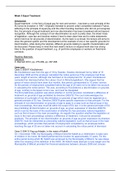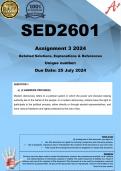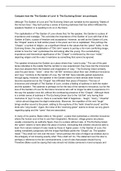Summary
Summary - H573/01 Philosophy of Religion - Problem of Evil
- Institution
- OCR
Notes covering the H573/01 Philosophy of Religion topic of the Problem of Evil, with explanation and notes covering all the necessary content for the exams.
[Show more]












